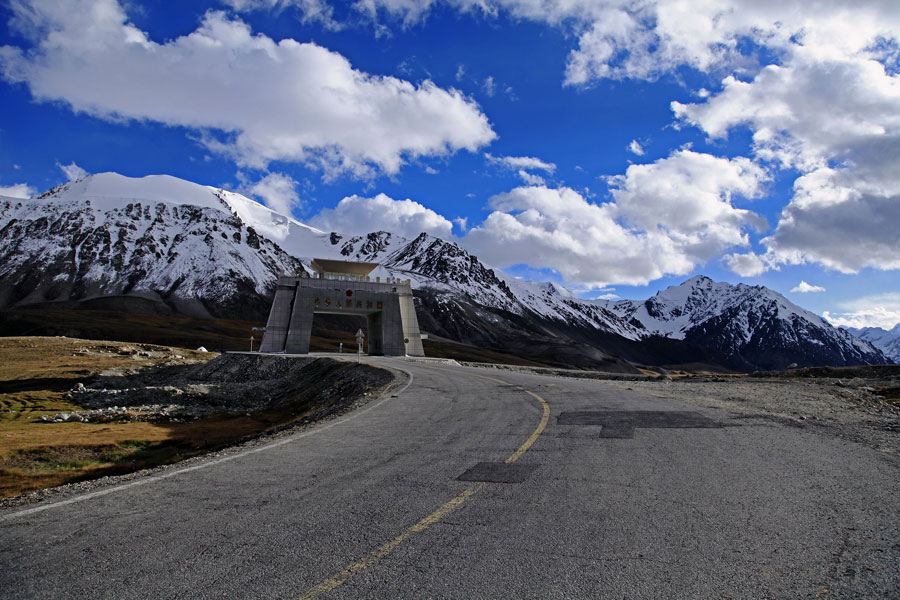Proud family guard nation's border


Although Bayika Kalidibek, 72, is no longer fit enough to accompany border control officers as they patrol the harsh environment of the border of the Pamir Plateau on the back of yaks in the Xinjiang Uygur autonomous region, he said he will continue to tell the stories of his family that has passed on the tradition of protecting the border area of China from one generation to another.
Bayika, of the Tajik ethnic group, made the remarks after being awarded with the national honorary title of People's Guard on Sept 13 on the occasion of the 75th anniversary of the founding of the People's Republic of China.
In the living room of his house in a small village in Taxkorgan Tajik autonomous county, which borders Tajikistan, Afghanistan and Pakistan, there are many pictures of Bayika taken by border control officers during patrols. He is always seen taking the lead when crossing rivers or entering narrow paths that are only about half a meter wide.
Being a guide for the Khunjerab border force, which guards the China-Pakistan border, is by no means easy. The border route often snakes over several mountains more than 5,000 meters above sea level, and it's so rugged and slippery that only yaks can be used to transport people.
Since 1972, Bayika has taken part in more than 700 border patrols and has been injured many times. In 1999 he injured his head and two years later five of his ribs were fractured after being hit by stones falling from a mountain.
Bayika said his father Kalidibek Dildar is his true and lasting inspiration. Like many local people from the county which has an average elevation of over 4,000 meters, Kalidibek saw protecting the border as a proud tradition and voluntarily took on the role of guiding border control officers to patrol the border in the mountains in 1949 because as a local herdsman he knew the mountain passes, glaciers, and even "Death Valley", where avalanches and landslides can happen frequently, like the back of his hand.
"He made me understand that guarding the border isn't only the duty of the country, but also the responsibilities of the herdsmen," Bayika said. "Although the patrol trip is tough and dangerous, we must lead the way."
Kalidibek helped Bayika to familiarize himself with the border route and taught him how to travel through the dangerous spots before passing on the role of being the guide for the border control officers to Bayika in 1972.
In 2004, Bayika passed on the role to his son Laqini Bayika who had grown up listening to his father's awestruck tales about his grandfather, prompting him to dream of being a patrol guide himself.
Laqini saved many people's lives during patrols. Unfortunately, he died while saving a boy from drowning in a frozen lake at the age of 41 when taking part in a training course in Kashgar city on Jan 4, 2021.
Bayika said his son's final action was no surprise to him, and that it was a choice he was bound to make and would even have done it again if he had survived.
"It still pains me immensely to think that he's gone, but I'm proud of him for saving others," the father said. "Our family has been guarding the border for more than 70 years, it will always be my responsibility as long as I live."
- Grand ceremony marks Confucius' birthday in Zhejiang
- China to see cooler weather but favorable travel conditions over National Day holiday
- Music video showcases Wuxi's heritage, progress
- Expert: Raising retirement age unlikely to affect employment opportunities
- Pingtan center a key stop for Taiwan compatriots seeking mainland qualifications
- Over 5,000 artists to take part in Shanghai festival





































